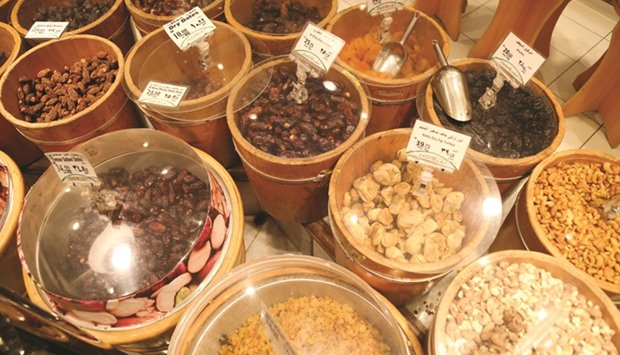Spending on foodstuff, particularly dried items, has increased since the beginning of the holy month of Ramadan.
Large crowds could be seen at hypermarkets and other retail outlets as people stock on various types of food products, with the demand being particularly high for dried fruits, among others.
According to sources in the retail sector, items that are sold in large quantities during this period include dates as well as walnut, pista, almond, cashew and sunflower seeds. The trend continues beyond Ramadan, running into the Eid holidays, they point out.
Besides the above-mentioned varieties, items such as dried figs - which mainly come from Turkey - are also easily found in the market.
As far as the prices of dried fruits are concerned, there has been a marginal rise compared to retail rates last year, according to sources. While most of them are available for prices ranging from QR35 to QR45/kg, cashew nuts are costlier with the wholesale price hovering around the QR52/kg mark, it is learnt.
“Dried fruits are a good option and we buy them in large quantities during this period, along with certain other types of food,” said a resident.
Some people, meanwhile, stressed the need for moderation while buying food and other products during Ramadan, saying people should refrain from purchasing more than they require. “We try to limit our purchases to what we actually require. This way, we can save money and also cut down on food wastage,” said one of them.
A few days ago, the Ministry of Economy and Commerce offered tips to citizens and residents to shop smarter and plan better for the holy month. The advisory came in the context of the increase in household spending on consumer goods and food that is generally witnessed during this period, the ministry had said.
The tips highlighted the importance of saving money and planning purchases in advance, allocating a monthly budget for food commodities, preparing a list of necessary family purchases and complying with it as well as avoiding shopping prior to Iftar as hunger is generally known to drive consumers to buy unnecessary products.

Dried fruits and nuts on display at a hypermarket in Doha. PICTURE: Jayan Orma
